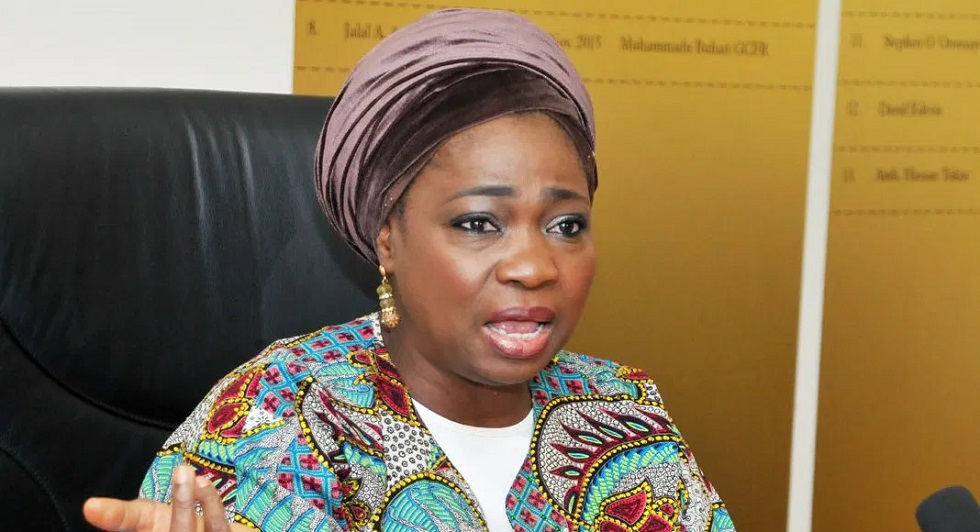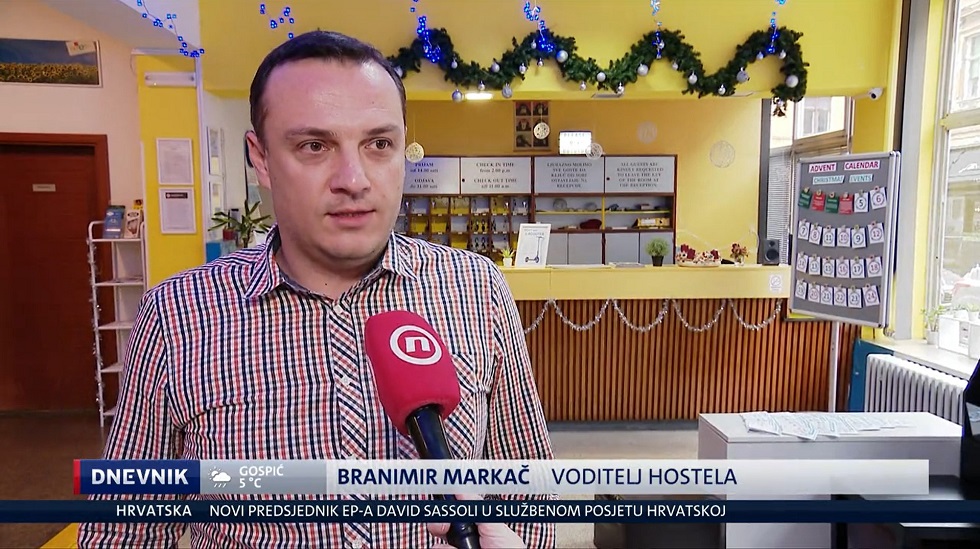Croatia Police Incident Not as The Guardian Reported - Nigerian Ministry
Abike Dabiri-Erewa, Chairman/CEO of the Nigerian Diaspora Commission for the government of Nigeria, responded to the allegations of two Nigerian students who came to Croatia to play table tennis and mysteriously ended up in Bosnia, after The Guardian article appeared on a local Nigerian portal.

Nigerian Minister of Foreign Affairs Intervened
“The Minister of Foreign Affairs is on this matter. It’s not as straightforward as you have reported, but the Mimster (sic) has personally intervened. We should give an update as the intervention continues,” she revealed in a tweet on Saturday, December 7.
The Guardian article titled “Police in Croatia deport Nigerian table tennis players to Bosnia” appeared on December 5. Since then the story has been picked up by DW, The Telegraph and others. And, then it appeared in TheCable, a Nigerian portal.
Croatian Police 'Kidnapped' Nigerians According to Žurnal
Žurnal, a portal based in Bosnia, broke this story on December 3 with the headline: “Croatian Police Kidnapped Nigerian Students and Took Them into Bosnia”. The Žurnal article also included a video interview with the students, Kenneth Chinedu Eboh and Uchenna Alexandro Abia, who alleged that Croatian Police apprehended them on a tram in downtown Zagreb. According to the students’ account they were brought to the police station on the evening of November 17, put into a van with other illegal migrants and forced at gunpoint by the Croatian police to cross the Bosnian border.
Žurnal Story Gets Picked Up by The Guardian
Writing from Tuzla, Bosnia - Lorenzo Tondo, a correspondent for The Guardian based in Palermo, Italy - referenced the students’ Žurnal interview in his December 5 article for the publication. He also interviewed Alberto Tanghetti, organizer for the Fifth World InterUniversities Championships in Pula, where the students had showed up without rackets and sports equipment, and competed in table tennis. Mr. Tanghetti confirmed that the young men had attended the competition and that he had identified them for volunteers at the camp in Velika Kladuša, where the men ended up.
However, Mr. Tondo’s December 5 article didn’t include the statement from the Croatian police which had appeared in Croatian media mid-day on December 4. Among other things, their statement disputed the students’ reported Zagreb travel dates and noted that another student in the group of five, had tried twice to cross the border to Slovenia and eventually applied for asylum in Croatia.
First Guardian Article Missing Police Statement
I contacted Mr. Tondo on the evening of December 5 to ask why he hadn’t included the police statement, which had appeared the day before and contradicted key details in the students’ allegations. I also pointed out that several Croatian media outlets had just interviewed the manager of HI Youth Hostel (also on December 5), where the students stayed. I added that the HI Youth Hostel is only 230m from the central police station on the same street, which calls into question why the police wouldn't have accompanied the students back to their hostel to verify their passports. According to the students’ allegations; the Croatian police brought them to the nearby police station instead.
Branimir Markač, the hostel manager, also disputed the students’ claimed check-in and check-out dates. The students stated that they checked in to the hostel on November 17, went for a walk in the city and were apprehended by police, who refused to allow the students to prove their identities and legal visas in Croatia, and took them in a van to Bosnia instead. The manager confirmed the Croatian police account that the students had checked in on November 16, rather than November 17, and checked out with their passports and belongings on November 18.
Mr. Markač also disputed the students’ account that an unidentified “friend” came to his hostel (the name of which the students couldn’t remember), retrieved their passports, and sent them to Bosnia, where local sources confirmed their arrival on November 25. The manager confirmed that no one came to his hostel in search of the Nigerians’ passports. He also emphasized that he would not have handed them over to a stranger.

Second Guardian Article Missing Hostel Managers’ Account
Mr. Tondo maintains that he didn’t obtain a police statement until 6 hours after his first article was published. In fact, he would have had that information the day before if he had been following Croatian media. He also didn’t include the hostel managers' account in his second article, written in Split, and titled “Croatia and Bosnia play political ping-pong over table tennis players”. That article, which appeared in The Guardian on December 6, quotes the Croatian police statement and refers the other Nigerian who attempted to cross the Slovenian border. However, it makes no reference to the hostel manager, even though I had provided him with this information and sources on the evening of December 5.
My correspondence with Mr. Tondo continued December 6, when I asked him the following:
- Did you read articles from any of the Croatian media outlets beforehand?
- Do you follow Croatian media?
- Do you read/speak Croatian/Serbian/Bosnian?
- Do you have an understanding of politics in Croatia?
- Did you contact anyone in Zagreb (besides the Croatian police) where this alleged incident happened?
Mr. Tondo declined to reply and responded that he was going to send my email to his lawyer. To my request for his editor’s name and contact information, he responded that he had already forwarded my emails to his editor and I could seek out that information by myself.
Does Lorenzo Tondo Know Croatian?
Upon contacting The Guardian by phone on December 6, I obtained the contact information for Tracy McVeigh, Editor of The Guardian’s Global Development Desk. I included my correspondence with Mr. Tondo and asked if The Guardian has a dedicated correspondent in Croatia who can follow news in Croatian/Serbian/Bosnian. I also indicated that Mr. Tondo would have a difficult time following the news developments in Croatia if he can’t read or speak the language. And, surely, there is a considerable pool of capable journalists living in Zagreb.
The Guardian Cannot Afford Croatia-based Correspondent
Ms. McVeigh declined to confirm whether Mr. Tondo knows Croatian/Serbian/Bosnian, and indicated that The Guardian, an international publication with over 8 million Facebook followers, cannot afford to keep a permanent correspondent in Croatia. Instead, she assured me that The Guardian has highly-skilled and experienced correspondents who travel to many different countries to write for their “British audience”.
According to the Croatian portal MojaPlaća (My Salary), the average monthly full-time salary for a journalist in Croatia, after taxes, is 4792 HRK (541 GBP, 644 EUR). So, it appears that The Guardian chose instead to assign this story to Mr. Tondo, a correspondent based in Palermo, Italy - who has not indicated whether he knows the local language. And he also appears to have accepted the Nigerian students’ story, reported by Žurnal, as fact.
No Witnesses to Students’ Alleged Zagreb ‘Kidnapping’
Other than contacting the Croatian police for a statement, which was already available to the public on December 4, there’s no evidence that Mr. Tondo made any other attempts to confirm the details of the students’ story. He apparently did not contact the manager of HI Youth Hostel, nor is there any evidence that he was following Croatian media as this story developed. There’s also no evidence that he made any attempts to reach out to the other Nigerian student in the group, who applied for asylum status in Croatia, and is currently being housed at the center for asylum seekers in Zagreb.
“I always knew there’d be a back story to this!” read one response to Abike Dabiri-Erewa’s tweet on Saturday.
“There is. But whatever the circumstances, the most important thing is to get them back,” the senior Nigerian government official replied.
Follow our Politics page for updates on this developing story and the migrant crisis in Croatia.

